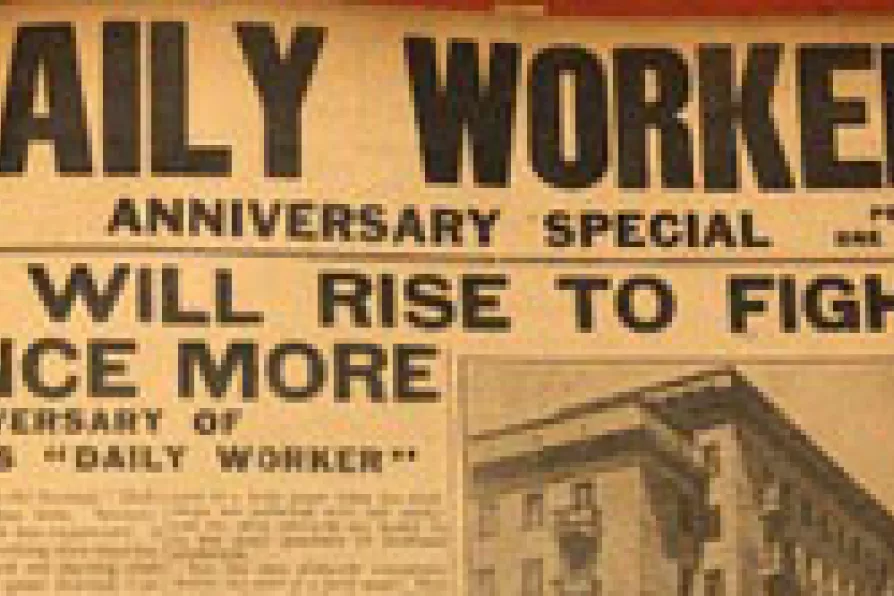John Wojcik pays tribute to a black US activist who spent six decades at the forefront of struggles for voting rights, economic justice and peace – reshaping US politics and inspiring movements worldwide


WITH media bans very much in the public eye at the moment, few can be better qualified to express a view than the Morning Star, whose forerunner, the Daily Worker, experienced a decade-long struggle with censors, libel suits, grizzly judges — one was described in the paper as a “bewigged puppet” — and eventually, an outright ban.
Today, January 21, is the anniversary of one such anti-democratic measure, and certainly the most serious.
The owners and editorial staff of the paper had seen it coming and made meticulous plans, which included legal and illegal printing, the establishment of powerful support leagues made up of factory workers and readers and even a High Court challenge. The challenge was successful, but the ban stayed in place.

A chance find when clearing out our old office led us to renew a friendship across 5,000 miles and almost nine decades of history, explains ROGER McKENZIE

PHIL KATZ looks at how the Daily Worker, the Morning Star's forerunner, covered the breathless last days of World War II 80 years ago

The pivotal role of the Red Army and sacrifices of the Russian people in the defeat of Nazi Germany must never be forgotten, writes DR DYLAN MURPHY

JOHN ELLISON recalls the momentous role of the French resistance during WWII









